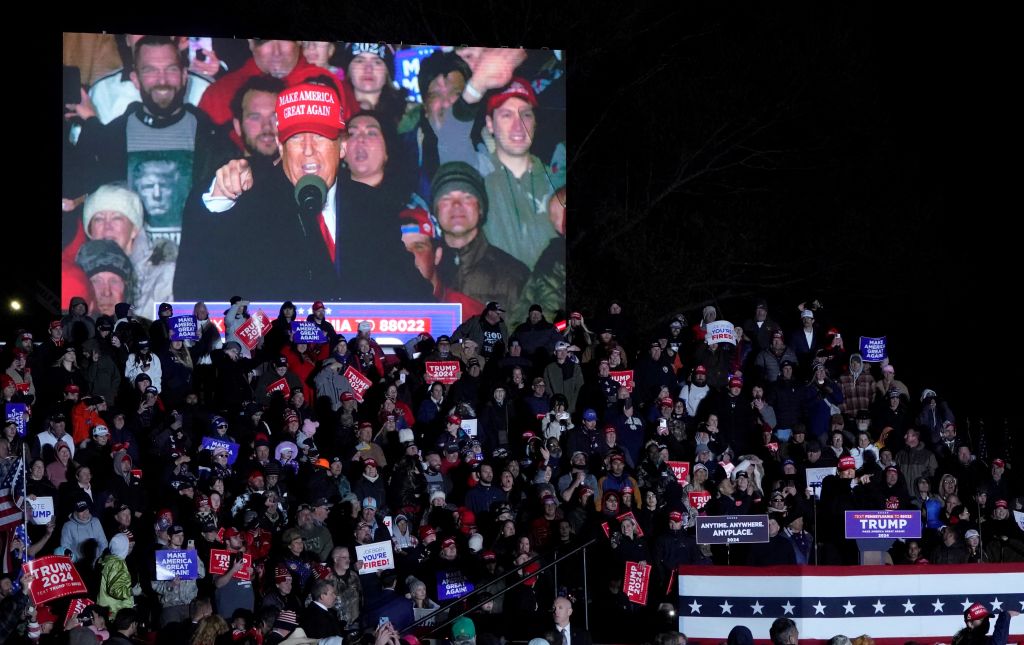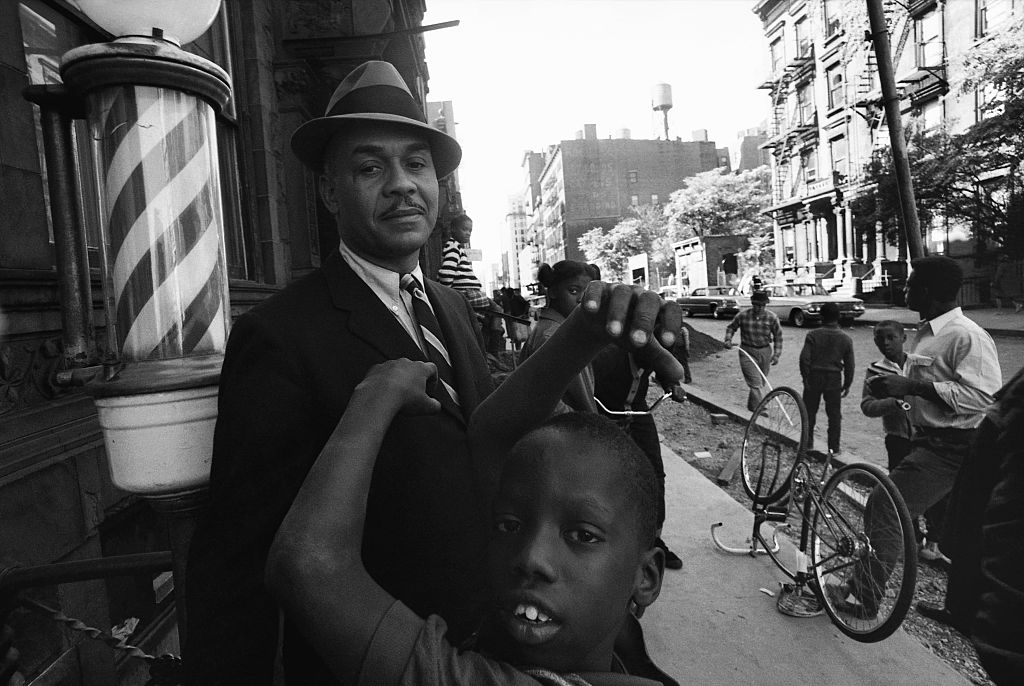
In 1970, two years and a couple days after the assassination of Dr. Martin Luther King, Jr., Time magazine published a special issue on Black America. The cover was a Jacob Lawrence portrait of Jesse Jackson, against the backdrop of bright yellows and reds, seemingly poised to speak. His eyes sad, skeptical, and cautious. The special issue included an extended essay on Jackson and the shifting terrain of Black politics. Another addressed the militant and hopeful attitudes among African Americans as they recognized the unwillingness of white America “to bend or change to accommodate black equality.” In April of 1970, with grief still palpable, the editors of Time sought to examine the complexities of Black lives and politics in the face of the white backlash during the Nixon years. Race held center stage.
But it was an essay, “What Would America Be Like Without Blacks,” written by Ralph Ellison, the author of Invisible Man, and, later, published in his 1986 collection of essays, Going to the Territory, that struck a chord with me. I have been struggling with how to characterize our current national malaise, especially given the recent reporting about Donald Trump’s plan to use civil rights laws to protect white people. It’s easy to describe MAGA Republicans as racists or to talk about the white backlash and to decry the assault on American history and the manufactured panic around immigration. But something more fundamental about who we are as a nation (or who we refuse to be) is being revealed in this moment. Ellison maintained that “whenever the nation grows weary of the struggle toward the ideal of American democratic equality,” we reach for the illusion of secession—the fantasy of a lily-white America.
That fantasy, of course, involves not only the desire to rid the nation of Black and brown people, but aims to banish us and the issue of race from the nation’s moral conscience. The likes of Jacob Lawrence or Ralph Ellison, for example, or even Dr. King and Jesse Jackson are reduced, by some today, to a mere footnote in the struggle for democracy. These political forces cast aside the creative tensions around race that have made the country what it is. In their hands, America’s original sin is settled by the wishful effort to wash the nation clean.
And we have seen this throughout the history of the country: from schemes during the antebellum period to send free Black people to Liberia to President Lincoln’s insistence that free Blacks accept the colonization scheme because white people “suffer from your presence” to the lies of the Lost Cause and Redemption to American immigration law like the Immigration Act of 1924 that insisted that ours must remain a white nation to the clamoring around the border today and the bitter fights about what to teach our children in schools.

This is the tragic feature of American life: that seemingly inescapable petulance and moral fatigue that leads so many to put aside efforts to make real the promises of American democracy and, instead, find comfort and safety in the idea that this country belongs only to white people.
I can imagine some of my liberal friends crying foul. That I have succumbed to cynicism—that I have forgotten about all those white people marching after the murder of George Floyd or those who voted for Obama. Actually, I am reminded of the life of Tom Watson in Georgia, who played a central role in the Georgia Populist Party and who, at one point in his life, found himself standing side-by-side with Black farmers defending them with arms only to become one of the most vicious racist in the south, or George Wallace, a moderate on race matters initially, but after losing an election declared “I will never be out-niggered again.” Or those in the 19th century, like Walt Whitman, who opposed slavery but loathed the idea of Black citizens voting. Moral fatigue around the battle for racial equality in this country has often led to a retreat to the solidarity found in being white or, more modestly, in resigning oneself to the world as it is.
No matter Trump’s bombast or his criminality the theater of his politics makes certain segments of white America feel good. His rallies offer a kind of catharsis and confirmation. Many who attend them are given license to express their hatreds and their fears. His popularity is not reducible to racism but born of it. He “is like a boil bursting forth from the impurities in the bloodstream of [American] democracy.”
Threats of secession or fears of the Great Replacement that motivate so much of the vitriol behind the immigration debate all express the desire of “getting shut” of the problem—of ridding the country of “the browns” and “the blacks” that present a danger to the white Republic (the unwanted others who pollute our blood). That ‘getting shut’ isn’t just about deportation, as the talk of overturning “affirmative discrimination” policies that disadvantage white Americans reveals, it is also about putting these people in their rightful place.
In 1970, Ellison examined this “free-floating irrationality,” what he called “a national pathology.” The fantasy of a lily-white America showed that, deep down, most white Americans don’t know who they really are. That when we think of this country apart from the distorting lens of race and racism, what comes into view is the extraordinary diversity and pluralism at the heart of America.
For Ellison, American popular culture betrays the lie that ours is a white nation. Perhaps Beyonce’s country album, Cowboy Carter, does the same. From our language to our literature to our politics, the presence of diversity has given this country its distinctive pitch and frequency. To deny this is to deny who we are, leaving some susceptible to the comfort of lies that tell them they matter more than others because of the color of their skin.
Trumpism, at its core, is the latest example of the fantasy of white America. We must say this explicitly and repeatedly, because it is at the root of the choice we face as a nation. That lie offers, as it always has, an easy resolution to the unsettling question of who we are as a nation. It leads some to believe they need “illegals” and “niggers” to feel fully American.
Some fifty-plus years ago, Ralph Ellison worried that the nation’s refusal to grasp the power of its soul—that “expression of American diversity within unity…, the presence of a creative struggle against the realities of existence”—would lead to a kind of “moral slobbism” that has always threatened to overrun this fragile experiment. We face that danger today. What is required of us, if we are to escape such a fate, is to reject the comfort of the fantasy of a lily-white Republic and, finally, discover who we really are as Americans and that will involve a full embrace of the diversity that makes this great country swing, Duke Ellington style.
More Must-Reads From TIME
- The 100 Most Influential People of 2024
- Coco Gauff Is Playing for Herself Now
- Scenes From Pro-Palestinian Encampments Across U.S. Universities
- 6 Compliments That Land Every Time
- If You're Dating Right Now , You're Brave: Column
- The AI That Could Heal a Divided Internet
- Fallout Is a Brilliant Model for the Future of Video Game Adaptations
- Want Weekly Recs on What to Watch, Read, and More? Sign Up for Worth Your Time
Contact us at letters@time.com